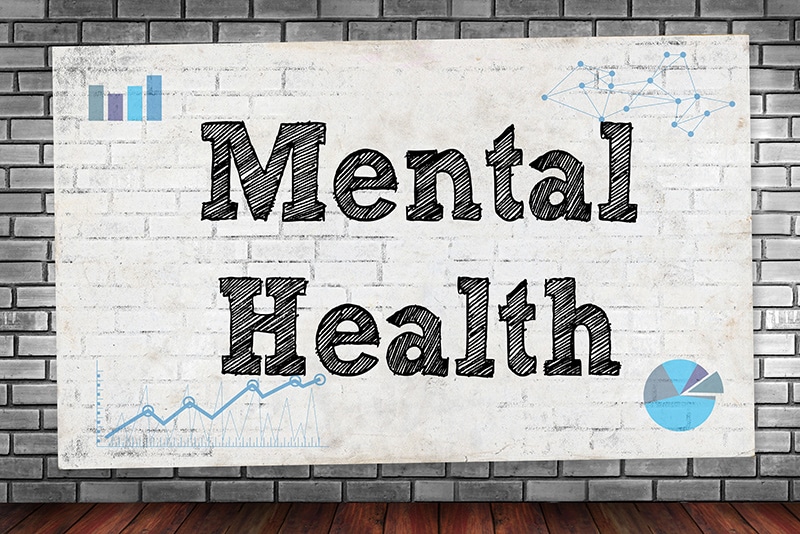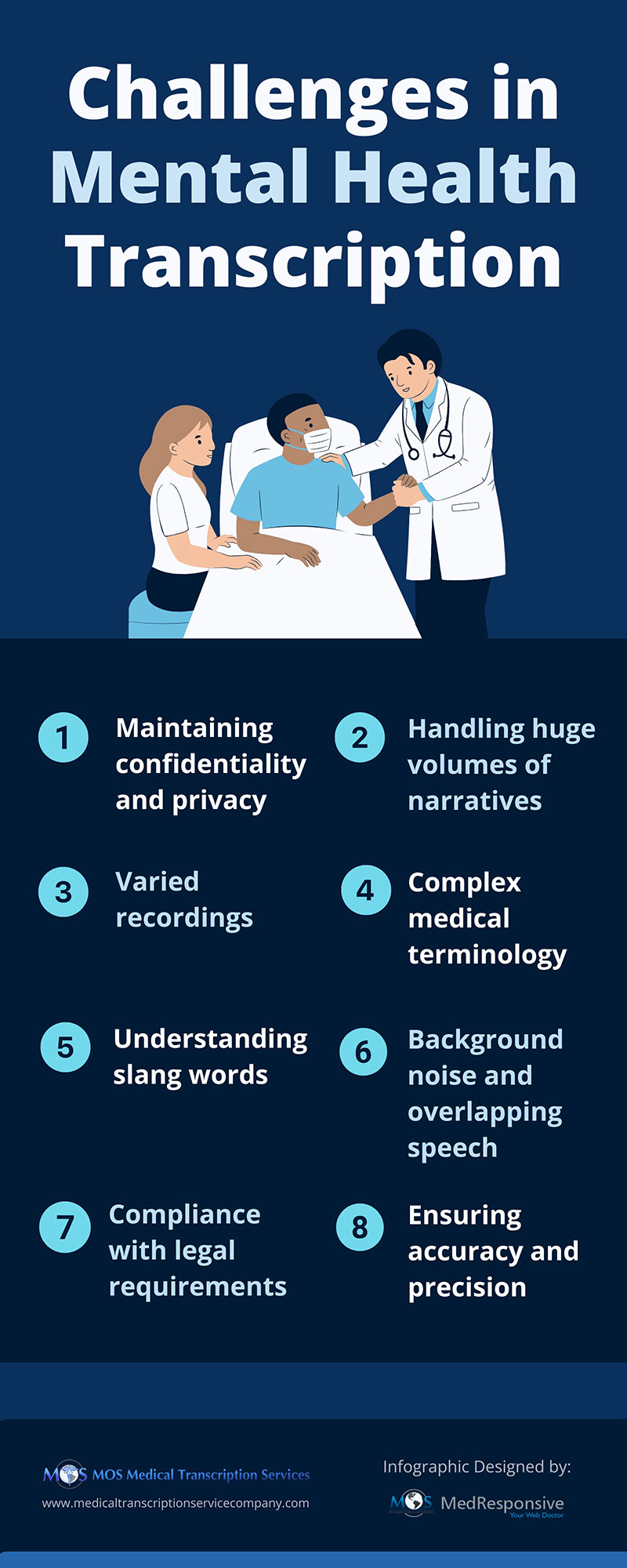
Table of Contents
Mental health transcription is a critical component in the field of psychiatry, catering to the needs of psychiatrists, psychologists, and other mental health professionals. Mental health transcripts are highly sensitive and often presented in narrative form. Mental health therapy and counseling sessions are recorded and transcribed to track patients’ progress and develop personalized treatment plans. Due to the depth and complexity of these sessions, this transcription process presents unique challenges compared to that of other medical specialties. Therefore, it is important to hire mental health transcription service provided by experienced and trained medical transcription professionals.
Specialized Expertise Important in Mental Health Transcription
Apart from medications and other treatments, mental health diseases also require therapy and counselling sessions to overcome any mental or emotional roadblocks. These sessions help to reduce stress and anxiety, and form a healthy mental state. Each of these sessions may take up to an hour or more, and are recorded and transcribed accurately.
Trained professionals with expertise in mental health and behavioral science are crucial in accurately documenting the intricacies of therapy sessions, contributing significantly to the overall well-being and progress of patients seeking mental health support. These experts follow a systematic process to transcribe various documents, notes, medical reports, and charts into precise and accurate medical records.
Challenges in Mental Health Transcription
- Maintaining confidentiality of mental health records: Mental health records are much more sensitive than any other medical records and they need to be shared and received with extra care. This helps to maintain the confidentiality of the patient’s details. Strict data security measures should be implemented to avoid leakage of patient information, which could lead to patient embarrassment or worse if released. Transcriptionists should abide by these strict measures because they deal with the patient’s mental health history and the present status. It is vital for all parties involved to be HIPAA-compliant and also follow all the federal regulations to protect the security, privacy, and confidentiality of the protected health information.
- Large volume-narratives need to be transcribed: Unlike a regular patient, a mental health patient’s situation goes way beyond any symptoms. It involves changes of feelings and emotions over a span of days or weeks. The psychiatrist, psychologist or other mental health-related professionals conduct several sessions with the patient until he or she feels better. Each of these sessions can be more than an hour and will have some important information that helps to treat the patient. Transcribing these sessions can be overwhelming. Every detail that a patient reports to the doctor should be noted down because it will be helpful for the treatment of the patient.
- Recordings vary from patient to patient: Mental health transcription is different from other medical specialty transcription. Since they deal with a patient’s mental health history and status, the clinical notes are often more varied, and commonly include longer narratives instead of standard medical terms or phrases. Specialties like cardiology or neurology use standard phrases or notes because the underlying conditions, surgeries etc. will be more or less the same for the patients. But in the case of patients with mental health issues, each patient will have a different mental state and the narratives of each patient will vary. This can be challenging for transcriptionists.
- Complexities in medical terminology: Medical terminology related to mental health can be highly complex. Therefore, it is important to ensure that the transcriptionist has an in-depth understanding of all the medical terms and insurance guidelines to generate error-free patient records.
- Understanding slang words and jargon: In psychiatry, there may be less emphasis on standard medical terms and more emphasis on slang or specialized terms. These would be difficult for non-native English speakers to understand if the transcription is outsourced to an overseas company.
- Background noise and overlapping speech: Group therapy sessions or multi-participant interactions often feature overlapping dialogues and background noise. Identifying speakers, capturing their words accurately, and filtering out unnecessary noise require advanced transcription tools and skills. Without clear audio or speaker identification, the transcription may fail to provide an accurate record of the session.
- Maintaining compliance with legal requirements: Accurate mental health documentation is critical for medico-legal cases, insurance claims, and court proceedings. Failing to comply with the required standards can lead to legal issues, denied claims, or even harm a patient’s case. Transcriptionists must stay updated on the latest legal requirements and ensure meticulous documentation to meet compliance standards.
- Ensuring accuracy and precision: A single error in mental health transcription can have significant consequences, from misdiagnosis to legal disputes. Transcriptionists must ensure exceptional attention to detail and double-check their work to ensure the final transcript is free from errors. Also, the transcripts are checked by editors and proof-readers to maintain the highest level of accuracy and precision.

The above-mentioned are the challenges faced when transcribing mental health notes. However, a reliable medical transcription services company has professional transcriptionists trained in the specificities of mental health transcription. These services play a major role in accurate documentation. They provide error-free medical records, transcribe transparently, follow stringent safety measures, maintain quality standards, and are also HIPAA-compliant.


